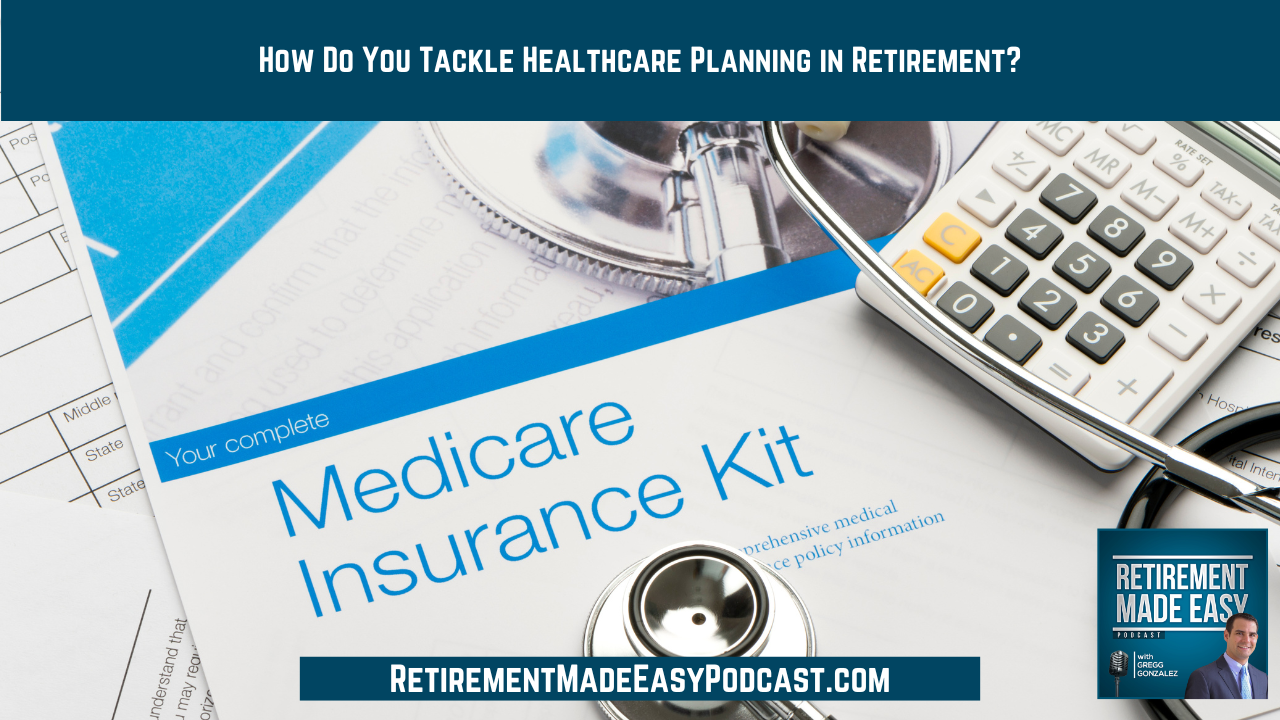
When it comes to retirement, healthcare planning isn’t just an afterthought—it’s one of the most important decisions you’ll make. Will your current savings cover future healthcare expenses? How will you bridge the gap if you retire before Medicare kicks in? Without a solid plan, unexpected medical costs could delay your dream retirement.
In Episode #173, we break down the key questions and strategies you need to consider to stay ahead of healthcare challenges in retirement. Whether you’re planning for your own retirement or helping a spouse navigate Medicare options, this episode will arm you with the tools to retire on time and on your terms.
You will want to hear this episode if you are interested in…
- [1:45] The five pillars of retirement planning
- [2:20] Check out RetirementMadeEasyPodcast.com for free resources!
- [3:41] Do you have to wait until you’re 65 to retire?
- [6:31] Saving in an HSA can cover healthcare expenses
- [10:53] Will healthcare expenses delay your retirement?
- [13:07] What will Obamacare cost per month?
- [16:18] Does your employer pay out unused vacation days?
- [17:49] Why would you consider transferring money into an HSA?
- [20:44] The basics of Medicare + supplements
- [25:53] Benefits and drawbacks of Medicare Advantage plans
- [30:23] Does your plan adequately adjust for inflation?
- [31:09] Check out the Retirement Made Easy YouTube channel
Do you have to wait until you’re 65 to retire and get on Medicare?
You have to be 65 to qualify for Medicare (unless you’re disabled). You can apply up to 3 months before your 65th birthday and up to 3 months after. If you decide to continue working, you can also remain under your employer’s health insurance plan.
What if you have a younger spouse? While they are eligible for 36 months of COBRA, you’ll want to look at the cost of it. It can often land around $800 a month, which is exorbitant. You can also shop for options on the healthcare exchange.
A well-formulated retirement plan will account for healthcare. If you knew one spouse would retire at 65 and the other spouse had another five years before Medicare eligibility, you could account for where the money would come from to pay for health insurance coverage.
Saving in an HSA can cover healthcare expenses
You could also save in an HSA to cover some of your projected healthcare expenses. In 2024, for self coverage, you can save $4,150 per year. Families can save $8,300 per year. If you’re 55 or older, you’re allowed a catch-up amount of $1,000. You can invest this and use the money to cover healthcare expenses throughout retirement.
You can keep OOP expenses in the money market portion of the HSA and invest the rest. HSA dollars can grow tax-free within the HSA. As long as they’re used for healthcare expenses, it comes out tax-free. Keep in mind that an FSA is not the same (they’re usually use it or lose it).
Talk with your financial planner to come up with a strategy (especially if your employer is contributing to it).
The basics of Medicare + supplements
In 2024, Medicare Part B has an annual deductible of $240. How much you pay for the monthly premium is determined by your income two years prior. The lowest tier is $175 per month (which is typically taken out of your Social Security benefit).
Keep in mind that Medicare only covers 80% of qualifying healthcare expenses. You can cover the other 20% out of pocket, or look at a Medigap or Medicare supplement plan (i.e. Medicare Part G).
A supplement plan typically costs an additional $100-$200 a month to cover the other 20%. The cost, again, depends on your zip code. Medicare Part D is for prescription drugs, which may cost around $25 per month.
None of these plans cover dental or vision. You’ll have to use your HSA or pay out of pocket for these expenses or purchase separate plans.
A Medicare Advantage plan is often referred to as Part C. These are all offered through private health insurance companies. You have to dive into the details to figure out who offers coverage for your current doctors, covers your prescription drugs, etc. I highly suggest meeting with an independent Medicare broker to find a plan that’s the best fit for you.
Listen to the whole episode to learn the benefits and drawbacks of Medicare Advantage plans and other pertinent details you need to know.
Resources & People Mentioned
Connect With Gregg Gonzalez
- Email at: Gregg@RetireSTL.com
- Podcast: https://RetirementMadeEasyPodcast.com
- Website: https://StLouisFinancialAdvisor.com
- Follow Gregg on LinkedIn
- Follow Gregg on Facebook
- Follow Gregg on YouTube



